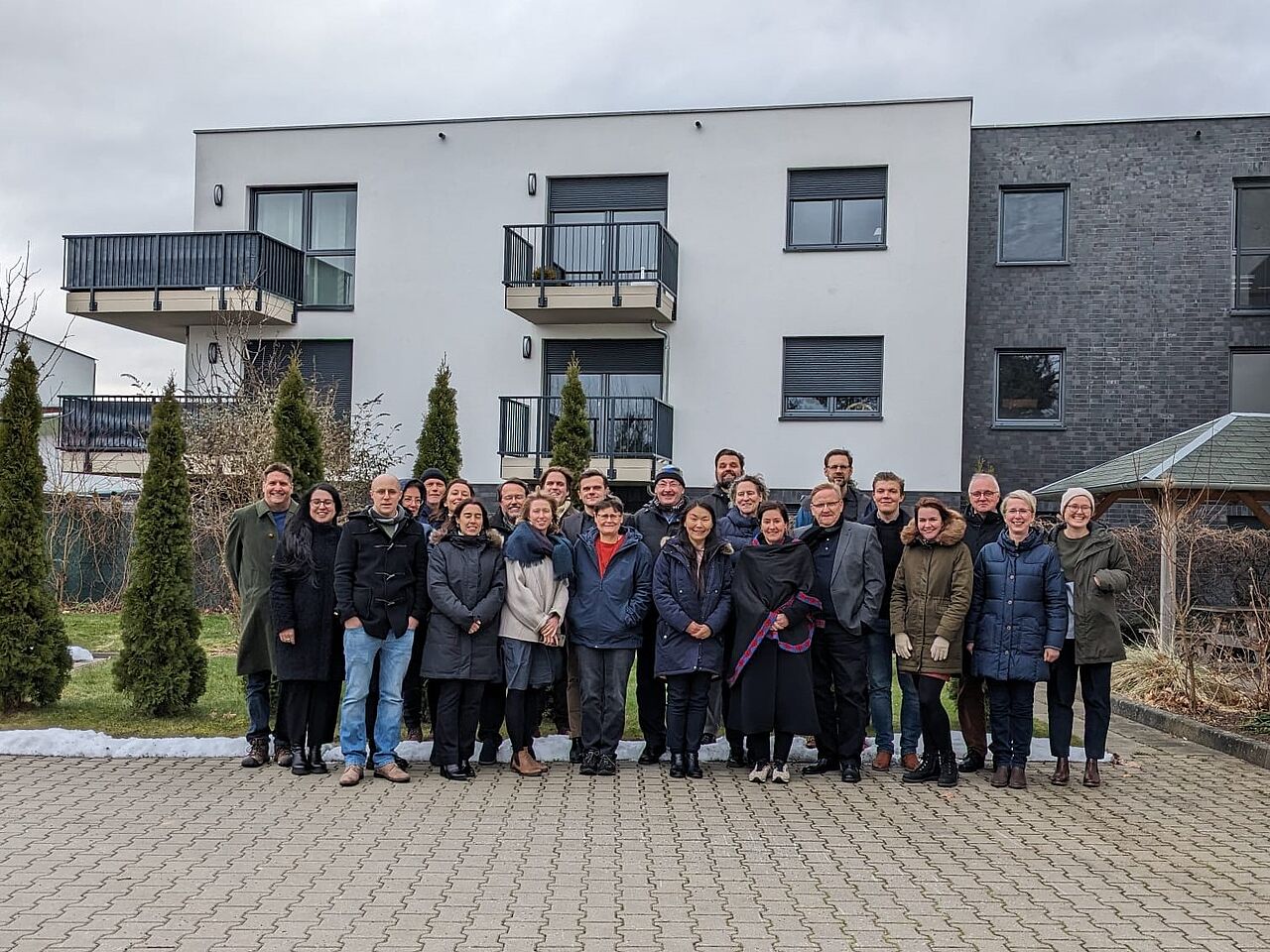Annual meeting of the BKP projects at the IAK

On Jan 15/16, 2024, IAK Agrar Consulting GmbH (IAK) invited team leaders and experts from the bilateral cooperation projects (BKPs) that IAK implements for the GFA Consulting Group (GFA) and the Federal Ministry of Food and Agriculture (BMEL) to the annual meeting in Leipzig. On the first day, internal processes, synergies and innovations in project implementation were intensively discussed together with IAK's management and the project managers.
The second day focussed on knowledge transfer and practical relevance:
Julius Kühn Institute (JKI)
The team of the German-Uruguayan Technical Agricultural Dialogue travelled to the JKI in Quedlinburg for a coordination meeting organised jointly by the JKI, BMEL, GFA and IAK. The meeting focused on the presentation of the individual components of the technical dialogue and the coordination of coordination measures.
The JKI presented its Micro2Health project, which aims to make the positive potential of the soil microbiome for sustainable soil use (soil fertility and carbon storage) widely accessible. There was also a discussion about the JKI's current research on fibre hemp and possible interfaces with the technical dialogue. Practical insights were provided in the JKI's greenhouse cabins, among other places.
Smart Farming Lab at the University of Leipzig
The second group gained cutting-edge insights into application-oriented research into digitalisation in agriculture at Leipzig University's Smart Farming Lab. Among other things, it focussed on the opportunities that agricultural robotics, blockchain technology and the use of drones can offer. The Smart Farming Lab team and the visitors from the international projects had a lively discussion on the question of whether miniaturisation of agricultural machinery can lead to reduced soil compaction as well as smaller arable fields and therefore greater diversification of the crops grown.
Transparent and traceable supply chains – this is where blockchain technology can provide support. Among other things, it can be used to record data from cultivation to delivery to the consumer and thus check, e.g., whether the cold chain has been maintained.
The use of drones can support agriculture in sowing, analysing plant health or the autonomous application of pesticides – the technical possibilities are manifold. The main focus here is now on making the use of drones economically viable and personnel-friendly.
In the actual lab, we were then able to see the prototypes up close. The next step is to test their effectiveness in practice and get them ready for the market and for use by farmers.
Köllitsch educational and experimental farm
From the lab, we then moved on to the largest demonstration farm in Saxony, the Köllitsch educational and experimental farm. Here, visitors are shown what modern, nature-friendly and sustainable agriculture can look like. Smart farming technologies, e.g., are tested in practice on various demonstration fields. In addition, digital technologies in animal husbandry and farm management information systems (FMIS) are trialled and taught to apprentices.
Another important concern is to counteract the trend that fewer and fewer people know where our food comes from and how it is produced – which is essential for the agricultural sector to be able to communicate its important social significance to the public.
In addition to its own farming activities with crop cultivation, animal husbandry and a biogas plant, the training and experimental farm also acts as a training centre, teaching apprentices the professional skills and specialist knowledge they need to work in a competitive agricultural sector. It is very positive that many young people are still deciding to learn an agricultural profession and that the training programmes in Köllitsch are in high demand from farms. In order for the sector to remain attractive, an attractive working environment must also be created on the farms.
Conclusion
The BKP projects carried out by the IAK have moved a little closer together again. For example, it was decided a) to streamline some internal processes, b) to incorporate innovations in the area of public relations (storytelling) into the other projects and c) to facilitate more cooperation between the projects through the use of new formats. All participants were very pleased with the personal exchange, the organisation of further cooperation and the insights into research and practice in Germany.
The following BKP projects were represented:
Agricultural policy dialogue (APD) African Union
Sino-German Agricultural Center (DCZ)
German-Mongolian Cooperation Project Sustainable Agriculture (DMKNL)
